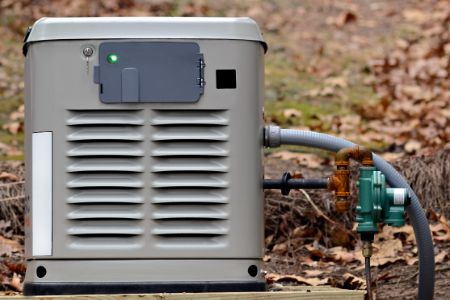How To Choose The Right Type Of Home Backup Generator

When power outages strike, a backup generator can be more than a convenience; it can be a lifeline. Choosing the right type of backup generator for your home is crucial to ensuring you have reliable power during emergencies. This blog post will guide you through the key considerations to help you select the best generator to meet your needs.
If you are curious to learn more about home backup generators, give us a call at 508-501-0504.
Understand Your Power Needs
The first step in choosing a backup generator is to determine your power requirements. Start by listing the essential appliances and systems you need to operate during a power outage. Common essentials include the refrigerator, HVAC system, water heater, and lights. Calculate the total wattage these appliances require to run simultaneously, which will help you understand the size of the generator needed. Remember that some appliances, like air conditioners and refrigerators, need more power to start up than to run, so it's important to account for these startup watts in your calculations.
Choose Between Portable And Standby Generators
Once you know your power needs, decide between a portable or a standby generator. Portable generators are generally less expensive and can be moved around, making them useful for both home use and recreational activities like camping. However, they require manual setup and operation, and they must be operated outside to avoid carbon monoxide poisoning.
Standby generators, also sometimes called home backup generators, are installed permanently by an electrician and start automatically during a power outage. They can provide power to more circuits and offer the convenience of not having to manually start or refuel them during an outage. Although more expensive up front, standby generators add value to your home and provide a seamless transition during power interruptions.
Consider Fuel Type
Backup generators can run on various fuel types, including gasoline, diesel, propane, or natural gas. Each fuel type has its advantages and disadvantages. Gasoline is readily available but may not be practical during power outages when filling stations can also be affected. Diesel generators are more fuel-efficient and longer-lasting but typically louder and more expensive. Propane and natural gas generators are less noisy and cleaner but require a steady supply of fuel delivered through a pre-existing line, which might not be available everywhere.
Look At Features And Warranties
Additional features can enhance convenience and safety. Some generators come with features like automatic CO shutoff, electronic fuel injection, and wireless monitoring. Also, consider the warranty and services offered by the manufacturer or dealer. A longer warranty can provide peace of mind, knowing that any issues will be covered for an extended period.
Consult with Professionals
Finally, it is advisable to consult with a professional electrician such as Western Electric Services LLC. We can provide valuable insights into the specific requirements of your area and help ensure that your generator complies with local codes and regulations.